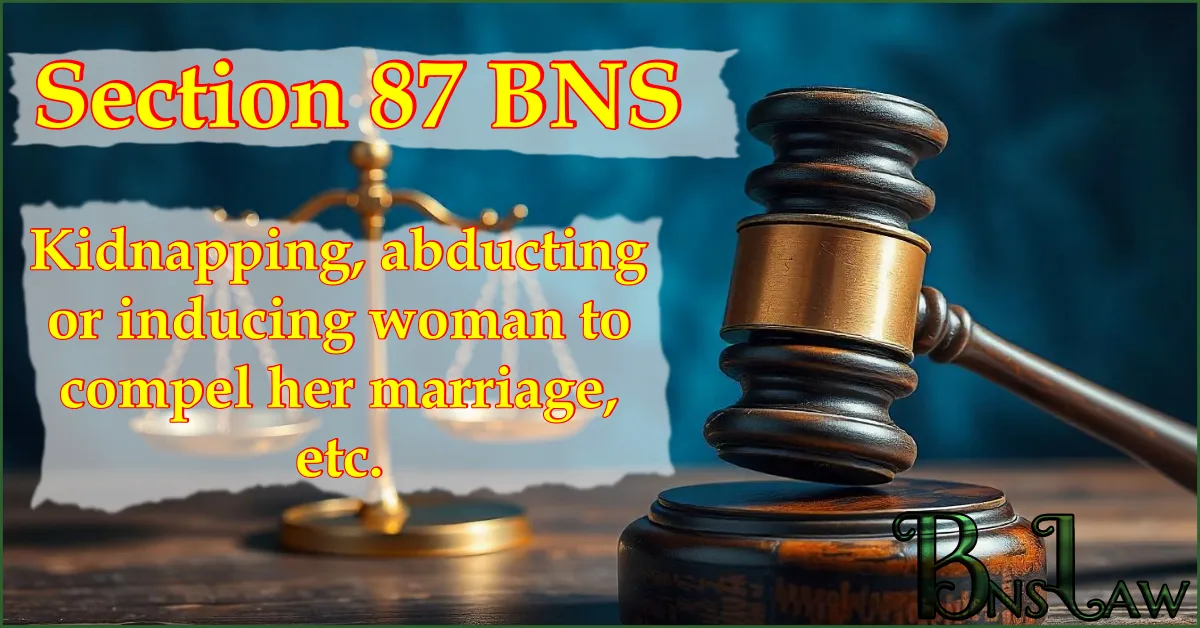Section 87 BNS | BNS 87 | BNS Section 87
Whoever kidnaps or abducts any woman with intent that she may be compelled, or knowing it to be likely that she will be compelled, to marry any person against her will, or in order that she may be forced or seduced to illicit intercourse, or knowing it to be likely that she will be forced or seduced to illicit intercourse, shall be punished with imprisonment of either description for a term which may extend to ten years, and shall also be liable to fine;
and whoever, by means of criminal intimidation as defined in this Sanhita or of abuse of authority or any other method of compulsion, induces any woman to go from any place with intent that she may be, or knowing that it is likely that she will be, forced or seduced to illicit intercourse with another person shall also be punishable as aforesaid.
READ OTHER SECTIONS OF CHAPTER V — OF OFFENCES AGAINST WOMAN AND CHILD
FAQs of BNS Section 87
-
87 BNS punishment and fine
Punishment and fine under Section 87 of the BNS: Imprisonment for 10 years and fine.
-
87 BNS cognizable or not
The offence under Section 87 of the BNS is cognizable.
-
87 BNS bailable or not
The offence under Section 87 of the BNS is non-bailable.
-
87 BNS trial court
Offence specified in Section 87 of the BNS is triable by the Court of Session.
Important Points
- Cognizable Offences: These are offences where a police officer can arrest a person without a warrant.
- Non-Cognizable Offences: These are offences where a police officer cannot arrest a person without a warrant.
- Bailable Offences: These are offences where the accused can get bail from the police station itself. All bailable offences are listed in the First Schedule of the Bharatiya Nagarik Suraksha Sanhita (BNSS).
- Non-Bailable Offences: Offences in which bail is not granted directly from the police station but after hearing the case in the court, the judge decides when bail will be granted. All non-bailable offences are listed in the first schedule of the Bharatiya Nagarik Suraksha Sanhita (BNSS).
- In the above FAQ, “trial court” means the court that has jurisdiction to try the offence.
- In the above FAQ, the expression “Magistrate of the first class” and “Any Magistrate” does not include Executive Magistrates.
Read other Sections of the BNS
Reference Link: New Criminal Laws (BNS), Ministry of Home Affairs







